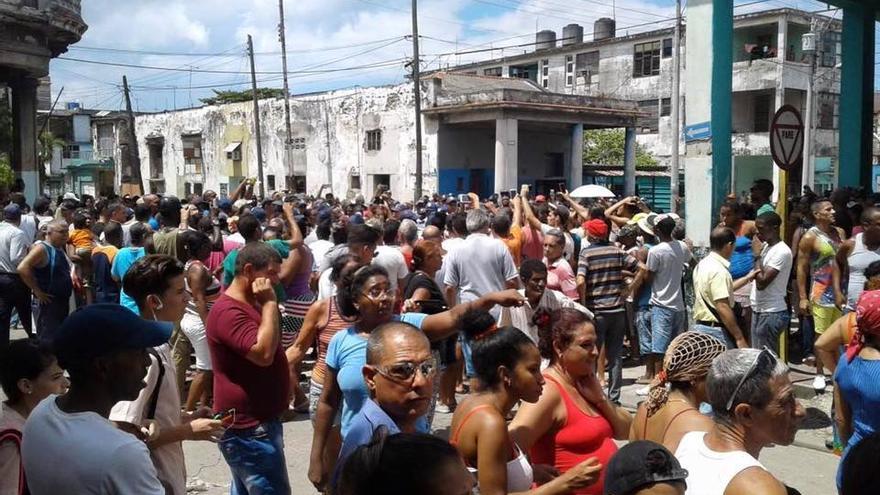
![]() 14ymedio, Havana, January 28, 2021 — It appears that economic reforms recently enacted by the Cuban government will not be enough to satisfy its creditors. Several Western diplomats and businesspeople believe that it will have to devalue and deregulate more if it wants to revive a bankrupt economy, obtain credit or pay its debts.
14ymedio, Havana, January 28, 2021 — It appears that economic reforms recently enacted by the Cuban government will not be enough to satisfy its creditors. Several Western diplomats and businesspeople believe that it will have to devalue and deregulate more if it wants to revive a bankrupt economy, obtain credit or pay its debts.
The experts, members of Cuba’s creditor nations who wish to remain anonymous, told the British news agency Reuters that they viewed recent changes on the island favorably but believe that they do not go far enough.
According to Reuters, a European diplomat from a member country of the Paris Club has proposed that the peso be devalued to an exchange rate of 40 to 50 to the dollar but believes that the government is unwilling to do so out of fear of public reaction.
“I think they are going to put off further devaluation for a long time,” he said, adding that the government is trying to curb public anger over spectacular increases in the cost of basic services such as the electricity by maintaining subsidies it should have abolished long ago.
Cuba’s public finances are in worse shape than ever. Venezuela, its main trading partner for the last twenty years, is drowning economically. American sanctions have impacted many of its businesses, starting with the country’s main source of income: remittances. The pandemic has paralyzed the tourism sector, one of the island’s key lifelines. Its international medical services industry is the only sector that remains afloat.
The country’s foreign debt in 2017, the last year for which figures were available, was already 18.3 billion dollars. The government, which agreed to a schedule for restructuring its obligations to the Paris Club, failed to make last year’s payment (about 85 million dollars). And although its creditors agreed to a delay, they still plan to impose sanctions.
Cuba does not have access to international markets or the IMF, which often requires a country to make budget cuts and devalue its currency before loaning it money. Cuba’s budget deficit, which the country’s own banks finance, is expected to triple to between 18% and 20% of current GDP.
According to one of Reuters’ sources, authorities initially insisted that company assets remain valued at the old one-to-one exchange rate. “The problem appears to have been resolved but it showed incompetence at certain levels of the politicized bureaucracy,” he points out.
Reuters quotes Paul Hare, former British ambassador to the island, who thinks that authorities should deregulate the small business sector and ease restrictions on foreign investment if it wants to encourage growth and absorb surplus labor, things that Cuban economists and large segments of the population would like to see. Both groups believe fewer roadblocks and less state involvement would allow for greater participation in the economy.
“Will they open up key sectors such as agriculture, energy or communications to foreign investment, or allow small businesses to engage in manufacturing, exports and build more than mini enterprises?” Hare asks.
But Reuters’ sources are skeptical of Havana’s willingness to carry through. “They keep on repeating that this is their goal. But are they seriously doing it? Not so far,” says one of the diplomats.
____________
COLLABORATE WITH OUR WORK: The 14ymedio team is committed to practicing serious journalism that reflects Cuba’s reality in all its depth. Thank you for joining us on this long journey. We invite you to continue supporting us by becoming a member of 14ymedio now. Together we can continue transforming journalism in Cuba.
